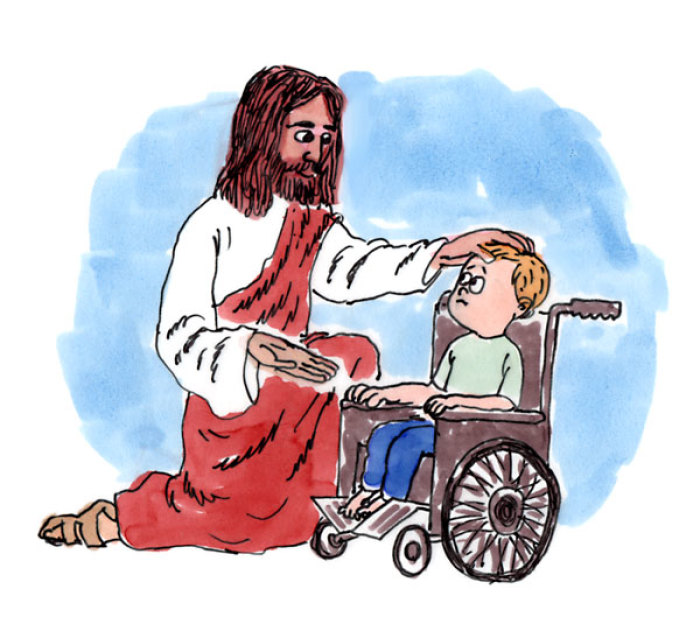Compassion for the Disabled Child

Secular humanists like to sneer at religious folk for our stubborn insistence upon seeing God's hand at work in the world. We call "providence" what the materialist sees as a random unfolding of events. We see a blessing where the nonbeliever sees nothing more than the mundane workings of physics or biology.
This mentality has insinuated itself into virtually every facet of contemporary culture, and its impact on bioethics has been particularly tragic. Human life is no longer considered to be sacred, and human dignity is no longer viewed as something inherent and inalienable. According to today's materialist values, human life is only worthwhile and dignified when it meets a certain standard of vigor and utility. If you don't measure up, then your life doesn't really matter.
Unborn children with chromosomal defects like Down's syndrome are one of the unfortunate groups adversely impacted by this new ethic. Because so many people now view children as a "choice" rather than a blessing, a disabled child is often viewed as an unwanted and – thanks to ever advancing medical technology – avoidable burden. National Public Radio recently ran a story celebrating the advance of precise prenatal testing for birth defects like Down's syndrome. As reported by First Things, the tone of NPR's coverage was unequivocally celebratory. "The story quoted physicians who lamented that inaccurate tests can mislead a woman into 'terminating what would actually have been a normal pregnancy.' With prenatal certainty about trisomy 21, the doctors said, women won't accidentally abort normal children."
Read more at http://www.christianpost.com/news/disabled-children-deserve-our-love-too-115632/




























